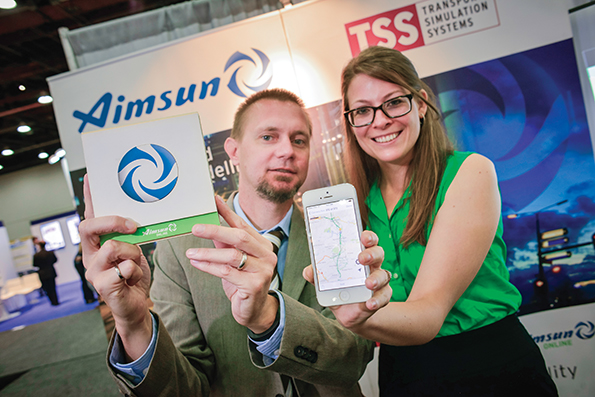The San Diego Association of Governments (SANDAG) integrated corridor management (ICM) system on Interstate 15 in San Diego, California, has just received the California Transportation Foundation award for Operational Efficiency Program, for the second time in three years.
This ICM project centres around a decision support system, for which TSS provides the Aimsun Online modelling tool.
Thanks in part to the success of the ICM system, in 2015 USDOT added the SANDAG ICM network to the Dynamic Mobility
The San Diego Association of Governments (SANDAG) integrated corridor management (ICM) system on Interstate 15 in San Diego, California, has just received the California Transportation Foundation award for Operational Efficiency Program, for the second time in three years.
This ICM project centres around a decision support system, for which TSS provides the7320 Aimsun Online modelling tool.
Thanks in part to the success of the ICM system, in 2015 USDOT added the SANDAG ICM network to the Dynamic Mobility Applications (DMA) Active Transportation and Demand Management (ATDM) Analysis, Modelling and Simulation (AMS) Testbed Project. This enables SANDAG to develop the tools needed to model both the communications and functionality of connected vehicles within the platform, including intelligent network flow optimisation and cooperative adaptive cruise control.
The system has been running in an automated state since March 2014, taking automatic control of signals and ramps when recommended by the simulated evaluations. The most recent update is the introduction of 40 alternate route signs along the arterials to guide drivers through the surface streets from and to the highway during a diversion.
This ICM project centres around a decision support system, for which TSS provides the
Thanks in part to the success of the ICM system, in 2015 USDOT added the SANDAG ICM network to the Dynamic Mobility Applications (DMA) Active Transportation and Demand Management (ATDM) Analysis, Modelling and Simulation (AMS) Testbed Project. This enables SANDAG to develop the tools needed to model both the communications and functionality of connected vehicles within the platform, including intelligent network flow optimisation and cooperative adaptive cruise control.
The system has been running in an automated state since March 2014, taking automatic control of signals and ramps when recommended by the simulated evaluations. The most recent update is the introduction of 40 alternate route signs along the arterials to guide drivers through the surface streets from and to the highway during a diversion.











